-
The Trump administration is trying to fire the ‘backbone’ of wildland firefighting
Last month’s terminations cut employees who serve critical support roles on fires.
-
Trump bars federal scientists from working on pivotal global climate report
The Trump administration told U.S. government scientists working on a vital global climate report to stop their work, according to a scientist involved in the report—the latest move to withdraw the U.S. from global climate action and research.
-
Cuts to U.S. weather and climate research could put public safety at risk
Firings and budget cuts could slow emergency disaster response and weaken resilience efforts.
-
How climate denial is fueling a U.S. homeowners insurance crisis and risking a 2008-style financial meltdown
New research reveals that rising insurance costs, reckless building, regulatory inaction, and big banks’ fossil fuel investments are driving a dangerous cycle that jeopardizes homeowners—and financial stability for everyone.
-
A day without NOAA, a day without the National Weather Service?
What is your morning routine? Wake up, maybe make coffee, tea, or other morning beverage or meal, check the weather.
-
Clean waters and green mountains are as valuable as gold and silver mountains: The Seventh Newsletter (2025)
What new worlds can science fiction imagine? From clean energy to ecological transitions, this newsletter explores how Global South writers and policymakers alike imagine–and create–futures beyond colonialism, pollution, and environmental destruction.
-
“Under the eye of the big bird”
A science fiction novel about the future of nature and technology reviewed by Ian Parker.
-
Socialism or barbarism–a statement of fact
Trump’s return when we already see a world at war, breathtaking inequality and climate catastrophe confirms Engles’ famous dichotomy, writes MATT WILLGRESS
-
AI is bad for the environment, and the problem is bigger than energy consumption
The collective energy demand of data centres in the United States is so high that Microsoft recently reached a deal to reopen Three Mile Island, the site of the worst nuclear accident in American history.
-
The ocean surface is warming four times faster than in the 1980s
Ocean temperatures were rising at a rate of 0.06 °C per decade, whereas now they are increasing by 0.27 °C every ten years.
-
Environment: Accelerating towards a collision with the climate
Human societies are setting themselves on a collision course with climate-induced catastrophes. Lithium-ion batteries will soon be facing competition. How to deal with x and the conflicts it creates?
-
Around 242 million children missed school last year because of the climate emergency, says UN
UNICEF said the world’s schools and education systems were “largely ill equipped” to deal with the effects of extreme weather.
-
78 miners found starved and dehydrated to death in South African police operation against unlicensed mining
The bodies of 78 dead miners have been retrieved from a shaft in Buffelsfontein mine’s Shaft 11 after being trapped underground since last August by the South African police who cut-off food and water supply in its attempt to crackdown on unlicensed mining.
-
Sarah Glynn & John Clarke – “Climate Change is a Class Issue”
In January 2024, the World Economic Forum predicted that by 2050 climate change will cause 14.5 million deaths and $12.5 trillion in damage.
-
Right-Wing sleuths find the LA fires culprit
Game-changing fires destroyed Paradise, California, in 2023, and Lahaina, Hawaii, in 2024—clear warnings, if any were still needed, that the climate catastrophe had arrived.
-
COVID-19 advocates are distributing masks to protect Californians from wildfire smoke
As the skies of Los Angeles filled with smoke this week from multiple raging wildfires, many residents quickly recognized failures in local and state governments’ ability to protect them from hazardous air pollution.
-
‘The rich are on course to destroy all our lives’
World’s wealthiest 1% have already burned through their share of the entire annual carbon limit, Oxfam warns.
-
Oligarch farmers and the fires in Los Angeles
Beverly Hills billionaires, fires, climate change, and the ecocidal terraforming system that underpins the California way of life.
-
‘The Fire Boom’
In this excerpt from Mike Davis’s classic book ‘The Ecology of Fear’, he explores the tinderbox of the wealthy “Los Angeles frontiers” and the massive public resources dedicated to keep it from igniting.
-
The Los Angeles inferno: A historic crime of capitalism
Firefighters are being flown in from neighboring states like Nevada, Oregon, and Washington, as local resources have been depleted. This shortage can be directly attributed to recent budget cuts signed by Democratic Mayor Karen Bass, with the Los Angeles Fire Department seeing a $17.6 million reduction, while the police department received a $126 million increase.

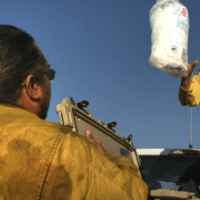


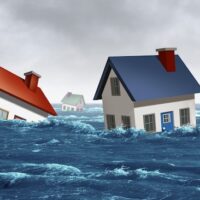
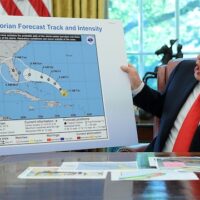






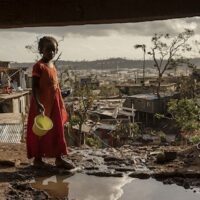

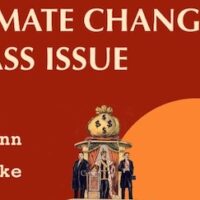
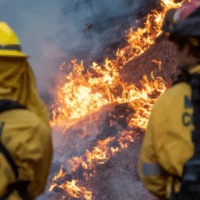

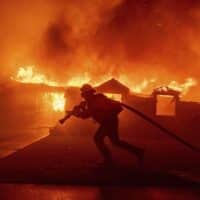

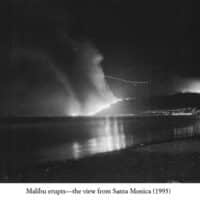
![Firefighters protect a structure as the Eaton Fire advances Wednesday, January 8, 2025 in Altadena, California [AP Photo/Ethan Swope]](https://mronline.org/wp-content/uploads/2025/01/LA-Fire-200x200.jpg)